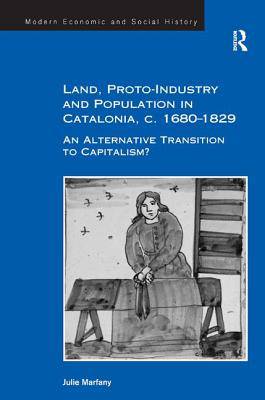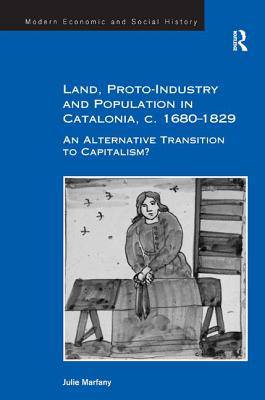
- Retrait gratuit dans votre magasin Club
- 7.000.000 titres dans notre catalogue
- Payer en toute sécurité
- Toujours un magasin près de chez vous
- Retrait gratuit dans votre magasin Club
- 7.000.0000 titres dans notre catalogue
- Payer en toute sécurité
- Toujours un magasin près de chez vous
Land, Proto-Industry and Population in Catalonia, c. 1680-1829
An Alternative Transition to Capitalism?
Julie Marfany
320,95 €
+ 641 points
Format
Description
This monograph makes a fresh contribution to a longstanding but far from exhausted debate concerning the transition to capitalism in Europe. The work investigates key aspects of this transformation: the changes on the land, the origins of the industrial revolution, the modern rise of population and the growth of markets. It does so from a new perspective, however, by focusing on an area of southern Europe, Catalonia. Catalonia's interest as an area for study lies in its precocity within a southern European context, as one of the few regions on the European periphery to industrialise in comparable ways and at the same time as areas of northern Europe.
Spécifications
Parties prenantes
- Auteur(s) :
- Editeur:
Contenu
- Nombre de pages :
- 230
- Langue:
- Anglais
- Collection :
Caractéristiques
- EAN:
- 9781409444657
- Date de parution :
- 10-08-12
- Format:
- Livre relié
- Format numérique:
- Genaaid
- Dimensions :
- 156 mm x 234 mm
- Poids :
- 503 g

Les avis
Nous publions uniquement les avis qui respectent les conditions requises. Consultez nos conditions pour les avis.






